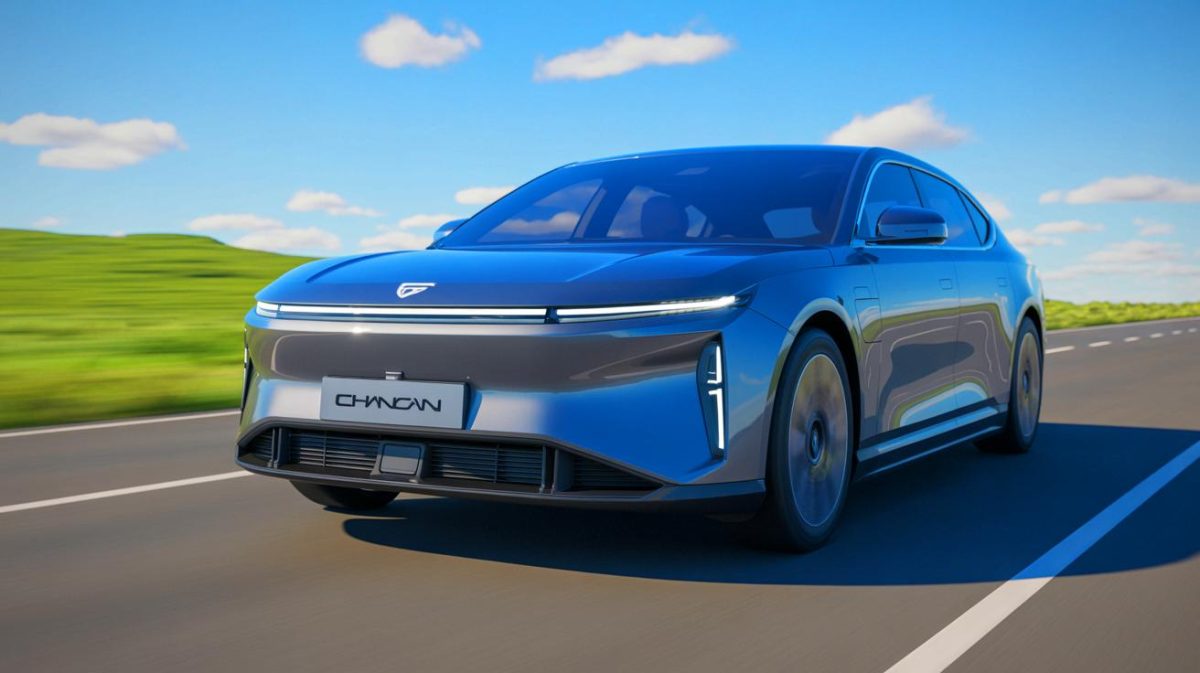| IN A NUTSHELL |
|
In the rapidly evolving world of electric vehicles, a new contender is emerging from China, aiming to reshape the landscape of personal transportation. Changan, a well-established automaker, is preparing to introduce an electric vehicle that boasts a remarkable 932-mile range on a single charge. This ambitious project promises not only to redefine our expectations of electric mobility but also to challenge industry giants like Tesla and Toyota. As the automotive world watches closely, Changan’s innovation could signal the dawn of a new era in sustainable transportation.
Breaking the Range Barrier
For many potential electric vehicle buyers, range anxiety remains a significant concern. However, Changan’s latest development is set to alleviate these fears by offering a vehicle that can travel over 900 miles on a single charge. Utilizing a cutting-edge solid-state battery, this vehicle promises to deliver unprecedented range and safety. Unlike traditional lithium-ion batteries, solid-state versions are less prone to overheating and provide higher energy density. This innovation means that long journeys, such as a drive from New York to Nashville, could become routine without frequent stops for recharging.
Solid-state batteries offer a capacity of 400 Wh/kg, a substantial increase compared to the 150 Wh/kg capacity of most lithium-ion batteries. This leap in technology represents more than just extended range; it offers a glimpse into a future where electric vehicles can compete with, or even surpass, their gasoline-powered counterparts in terms of convenience and efficiency. The implications for both consumers and the environment are profound, as this technology could significantly reduce the carbon footprint associated with personal transportation.
Changan’s Strategic Vision
Changan’s journey to this groundbreaking development is deeply rooted in its history. Founded in 1862, the company has navigated numerous challenges throughout its existence. It now stands on the brink of redefining the electric vehicle sector. With plans to commence production by 2027, Changan aims to establish itself as a formidable competitor to established brands such as Toyota and Mercedes-Benz, which have set their sights on similar advancements by 2030.
The company’s focus on solid-state battery technology is a critical component of its strategy. By replacing liquid electrolytes with solid materials, Changan enhances battery safety and efficiency. This innovation promises not only to extend the range of electric vehicles but also to reduce the risk of battery-related incidents. Additionally, the rapid charging capability of these batteries means that drivers can quickly recharge during short breaks, further increasing the practicality of electric cars for long-distance travel.
Redefining Electric Vehicle Standards
Changan’s vision for the future of electric vehicles involves eliminating the compromises that have traditionally plagued the industry. The automaker’s solid-state batteries address three key concerns: safety, longevity, and efficiency. By offering enhanced safety features, such as reduced risk of leaks or explosions, and a lifespan twice that of current lithium-ion batteries, Changan ensures that consumers can enjoy peace of mind while driving.
The efficiency of these batteries, which provide 30% more energy per pound, further enhances their appeal. This breakthrough technology not only promises to lower recharging costs by 50% over the next decade but also offers a more sustainable alternative to current battery technologies. As the industry shifts towards more environmentally friendly solutions, Changan’s advancements could play a pivotal role in shaping the future of electric mobility.
A Global Shift in Perspective
As Changan prepares to roll out its next-generation electric vehicles, the global automotive industry is taking notice. Prototypes are expected by the end of 2025, with rigorous testing throughout 2026 and full-scale production by 2027. This accelerated timeline puts pressure on competitors to innovate and adapt quickly. Major players like Toyota and Nissan are closely monitoring these developments, while Tesla faces the challenge of maintaining its leadership position in the face of emerging technologies.
Changan’s commitment to sustainability and ethical production practices further enhances its appeal. By prioritizing the responsible sourcing of materials and recycling, the company positions itself as a leader in sustainable manufacturing. However, the true test will be whether these ambitious claims can withstand the scrutiny of industrial realities. As the world moves towards cleaner energy solutions, Changan’s innovations present exciting possibilities for the future of transportation.
The automotive industry is on the cusp of significant transformation, driven by advancements in battery technology and a growing emphasis on sustainability. As Changan leads the charge with its groundbreaking electric vehicle, consumers and industry stakeholders alike must consider the implications of these developments. Will the promise of extended range and enhanced safety be enough to convince consumers to embrace this new era of electric mobility? How will established automakers respond to the challenge posed by this innovative newcomer? The answers to these questions will shape the future of transportation for years to come.
Did you like it? 4.3/5 (20)








Wow, 932 miles on a single charge? That’s mind-blowing! 🚗
Is this the end of range anxiety for good? 🤔
Finally, a serious Tesla competitor! Let’s see how Elon responds. 😅
Solid-state batteries sound promising, but how safe are they really?
Why is America lagging behind in battery tech? 😠
Merci pour cet article, très instructif! 😊